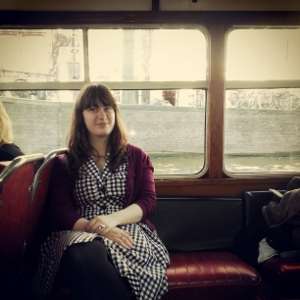There are some concerts where you are confronted with the same emotions from start to finish, concerts with pieces that have a similar feel and similar impact throughout. Tonight’s concert was not one of those: it varied from funny (Jeux), to serene (Prélude), to confusing (Concerto for piano and winds). Despite these differences, all the pieces bring out the best in each other: following the Prélude with Stravinsky’s challenging Concerto not only emphasized how simple yet effective the Debussy piece is, but also how complex and exciting the Stravinsky is. Simliarly, the light-hearted, upbeat nature of Debussy’s ballet Jeux only made the drama and big gestures of Rimsky-Korsakov’s Suite from Kitezh even more palpable.
Debussy’s Prélude à l’après-midi d’un faun is one of the most recognisable pieces he wrote. Starting with a beautiful flute solo that introduces a melody that is weaved through the piece, there is a sense of serenity and completeness about the Prélude. From start to finish it flows so easily, and the Radio Philharmonic did a great job in making the Prélude sound smooth yet mysterious. The woodwind section excelled, as they often do, while the strings helped sweep the listener away.
Stravinsky’s Concerto for Piano and Winds is a different beast altogether. Although some Stravinsky pieces are complex yet instantly understood, this concerto has so many layers, tempo changes and melodies going on that it might take more than one listen to love it. The Radio Philharmonic Orchestra got off to a rocky start, with the orchestra not completely in sync for the opening notes, but soon they and soloist Ronald Brautigam were immersed in the piece and their interpretation was spot on. It’s a piece with much juxtaposition; some chords sound almost baroque, yet the piano parts are almost like jazz at times. For some reason, this worked very well; Brautigam certainly embraced the rhythmic challenge and gave a great performance, although at times he was drowned out by the orchestra. As far as the orchestral performance goes, this was definitely the lesser of the evening, though I must say that the horn section played some achingly beautiful harmonies and the brass in general recovered quickly from their somewhat weak opening.
Before playing Debussy’s ballet Jeux, conductor Mark Elder gave a short introduction to the piece. Just like the introduction he gave before Shostakovich’s Fourth Symphony in Rotterdam last year, it only added to the experience of the concert. Not only because knowing the story of the ballet – it concerns two girls and a man looking for a tennis ball and finding romance (and another tennis ball!) – helps in listening to the music, but also because Elder really expressed his passion for Jeux. This could also be heard in the music; the performance was radiant, bringing out the romance and humour while staying true to the beautiful orchestral colours of Jeux. The ending, which Elder had already warned the concertgoers would be unexpected, elicited a giggle in quite a few listeners and even several orchestra members had smiles on their faces.
Rimsky-Korsakov’s Suite from Kitezh consists of several orchestral fragments from the opera (which had a successful run in Amsterdam earlier this year). Although I have never found Rimsky-Korsakov to be an instantly recognizable composer, there is always such impressive skill in his orchestrations. Like Debussy, the colour and textures are beautiful and a feast for the ears. The Radio Philharmonic gave us an energetic performance, with the ‘Tartar Invasion’ being particularly memorable: I could easily imagine armies invading the stage. My only reservation with this performance is about the piece itself; being that its from such a long opera, surely the suite could be a bit longer! I would have loved to hear the Radio Philharmonic play at least 30 more minutes of Rimsky-Korsakov.


